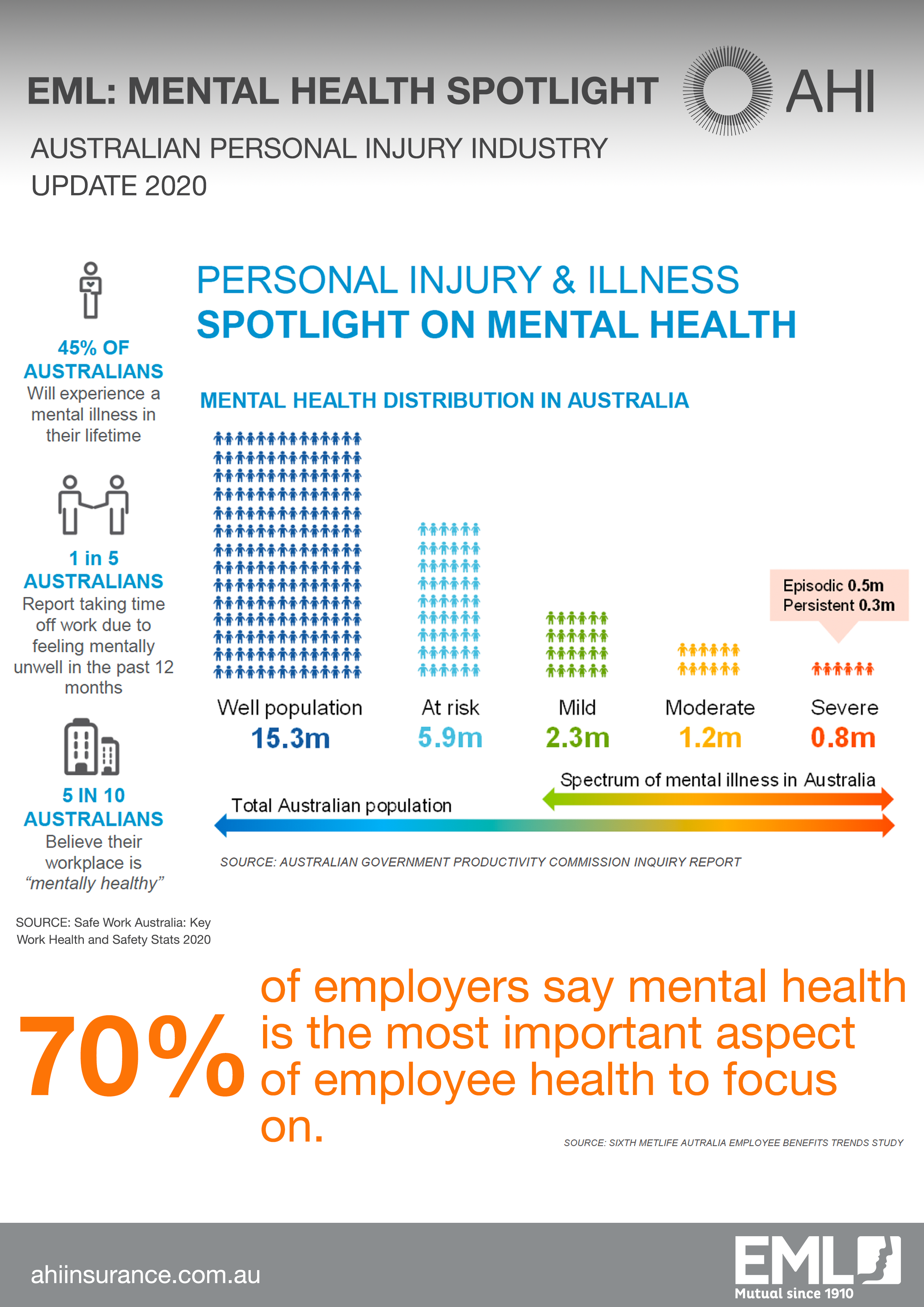Mental Health in Business – From Legalities to Driving Productivity
With a rising emphasis on Mental Health in the workplace, we thought it was time to look at what employee rights are, what responsibilities businesses have and who benefits.
There has been a huge movement in the last few years for businesses to focus on wellness and fostering high performing workforces, and this coincides with the increased awareness of the breadth of mental health and its impact on individuals and teams. Many organisations are looking at prevention and early intervention in their wellness programs with a focus on openness and transparency around the discussion points of mental illness – the days of this being taboo are long gone - but rather looking at how they can prevent or minimise harm by creating psychologically safe work environments.
The reasons for businesses taking this new approach are not just altruistic, they’re based in economics according to Safe Work Australia, where a PWC report stated that doing nothing to address safety of the one in five people suffering from mental health concerns in the workplace is costing businesses in excess of $10.9 billion in lost productivity.
In a recent article on Forbes.com specialists in workplace best practice for mental health listed the following organisational benefits for companies that focus on psychologically healthy workforces:
- Improving employee retention and job satisfaction
- Increasing productivity and improved customer service
- Reducing employee-related risks and potential liabilities
- Reducing total medical costs
- Lowering absenteeism and presenteeism (coming to work but unable to be fully productive)
- Enhancing company reputation (being seen as an organization that cares for its workforce)
According to headsup.org.au “both employers and employees have formal rights and responsibilities under discrimination, privacy, and work health and safety legislation.” In practice, organisations that are succeeding in creating productive workforces are taking a collaborative approach. Asking questions, making reasonable adjustments and providing a safe and supportive environment that promotes success.
How to create the right environment
EML, one of the leading workers compensation and personal injury claims managers states that mental health claims are in the top 5 managed injuries.

Click here to download the infographic
For this reason, their Principal Consultant Anna Feringa has spent the last 9 years assisting business in creating management plans, “This is to help these organisations identify industry mental health issues, put in place structures and procedures to ultimately prevent, alleviate and assist unwell employees.”
Often Anna sees two sides of the coin, “Managers and staff are also reluctant to ask the question – ‘Are you okay?’ out of a fear of the response and the chance of offending. In many instances ‘policy’ has killed care.
Then there’s the other side of the spectrum where management are getting involved. The staff member heavily relies on the manager and they are getting burnt out. The manager becomes the carer.”
These strategies are key to success, but the implementation is equally important in creating the right environment to support employees when an issue arises. Today, implementing employee strategies at scale means we need to leverage technology.
The results of having a wellness strategy and creating a psychologically safe and supportive work environment are difficult to dispute, and AHI recommends the following to get you started:
- Make your wellness strategy one of your business goals
- Get support from trusted partners if you need help getting started
- Implement programs that support psychologically safe work environments
- Share the risks and results with your business
- Ensure you have market leading cover
Helpful services & information
Aftercare: 1300 001 907
Black Dog Institute: blackdoginstitute.org.au
Blue Knot Helpline: 1300 657 380
Carer Support: 1800 242 636 or 1300 554 660
Gambling Helpline: 1800 858 858
headspace: headspace.org.au
Mind Australia Infoline: 1300 286 463
Movember: au.movember.com
PANDA Helpline: 1300 726 306
Parentline: 1300 301 300
QLife: 1800 184 527
ReachOut: au.reachout.com
Relationships Australia: 1300 364 277
R U OK?: ruok.org.au
SANE Australia Helpline: 1800 187 263

